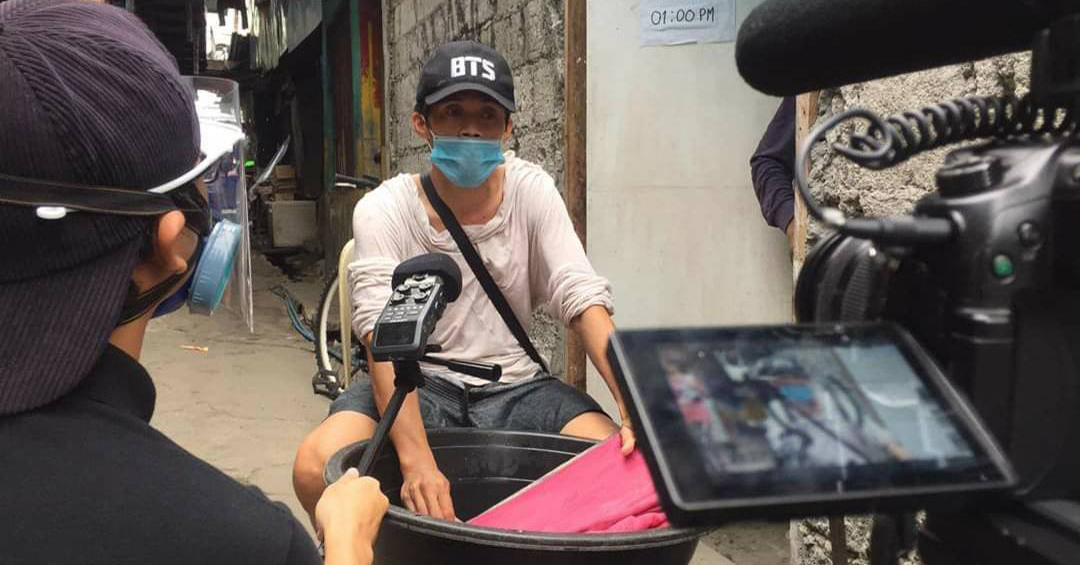Legislation to ensure just compensation and working conditions for journalists and media workers is as timely now as it ever has been for the profession and while the media prides itself on being a self-regulating profession, this has also made it vulnerable to unfair employment practices.
Aside from putting media workers at economic risk, these conditions also put them at risk of the temptation of unsafe or unethical behavior. This behavior endangers not just media workers but the integrity and credibility of journalism in general as well.
The potential erosion of this credibility may have a far-reaching and long-lasting impact on trust in information and in the idea of democracy and discourse.
As the media profession continuously strives to reach the high standards that we have set for ourselves, the National Union of Journalists of the Philippines welcomes the proposals to put in place safeguards for media workers that will help the profession, as Senate Bill No. 1820 declares, “perform their duties as truthful and responsible informers of the people.”
Coverage
We are wary of the use of the term “legitimately” in Section 3 of Senate Bill No. 1820 since it is unclear how legitimacy would be established. During the discussions by the Technical Working Group, it was proposed that the term be struck out. We support the proposed deletion to make coverage of the proposed law broader.
NUJP would also like to raise for consideration by the committee that some media workers may be employed in a media entity’s News and Public Affairs unit, for example, but will not be working in “news media”.
Some would work on programs that might not be considered news but these workers would also benefit from protections similar to those proposed in the bills.
Compensation and tenure
We support the proposal that entry-level media workers receive no less than the minimum monthly compensation determined by the National Wages and Productivity Commission (NWPC) and Regional Tripartite Wages and Productivity Boards (RTWPBs), whichever applies” but join concerns raised during discussions that media workers might end up stuck at that wage level for years. In any case, that might not be an issue that can be addressed through legislation.
We also welcome mandated overtime pay and night shift differential pay for media workers as the practice of working overtime for free is common and has been passed off as part of the “culture” of newsrooms. We hold that while journalism is at times a calling and vocation, it is also work and that employers cannot expect their workers to do it for free.
We support as well the proposal to ensure regularization of a media worker “after six months of continuous employment, regardless of the nature of employment” and recognize that freelancing and project-based employment are a trend in media in the Philippines and abroad.
We hope, however, that freelancers who do want and who qualify for security of tenure are given an opportunity to get it.
We are also wary of the argument that employing media workers on a project or “raket” basis as is done in some media companies is necessarily beneficial to these media workers. NUJP holds that media workers might not have to take on several “rakets” if a single job provide them with the proper compensation and benefits that they deserve and need.
As pointed out by the Occupational Safety and Health Center during TWG meetings, these work arrangements also pose safety and health risks for media workers.
We recognize that freelancing and “raket” work are valid work options and should remain options and not a necessity for workers who are having trouble making ends meet.
Hazard pay and insurance
NUJP welcomes the proposal to mandate hazard pay of at least P500 per day for media workers who are “required to physically report for work in dangerous areas, such as strifetorn or embattled areas, distressed or isolated stations, disease-infested areas or in areas declared under state of calamity or emergency for the duration thereof which expose them to great danger.”
In a survey earlier this year of more than 200 journalists, half said they were not given hazard pay when assigned to risky coverage and the proposal will hopefully address that lack.
We welcome as well the proposal for employers to provide their media workers with safety gear when assigned to potentially hazardous coverage.
Additional insurance as proposed in SBNs 1820 and 2021 are also welcome.
News Media Tripartite Council
The creation of a News Media Tripartite Council “a platform for both media workers groups and media entities in the crafting of policy decisions that will affect them and the industry as a whole, and serve as an avenue to express their aspirations, present their programs or bridge gaps in cases of conflict among them” is also welcome and is among the proposals contained in the Philippine Plan of Action on the Safety of Journalists.
We join the Federation of Free Workers, however, in moving for the explicit inclusion of unions alongside “media workers groups” in the council in recognition of state policy to “promote free trade unionism as an instrument for the enhancement of democracy and the promotion of social justice and development.”
Their inclusion would give unions a bigger voice and more say in policy decisions that would affect their members most and as well as an avenue for seeking redress.
Submitted to the Senate Committee on Labor, Employment and Human Resources Development



